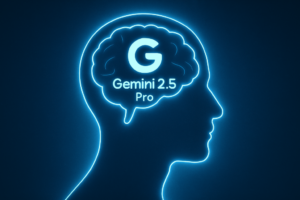Study Finds Leading AI Grading Tool Unjustly Benefits Meta, Google, and OpenAI

The Flaws in Measuring Chatbot Performance
Introduction to Chatbot Benchmarks
Recent research from a team at Cohere, along with scientists from Stanford, MIT, and other esteemed institutions, reveals that the common methods used to evaluate chatbots are deeply flawed. These benchmarks, specifically through platforms like Chatbot Arena, are often influenced and manipulated by powerful companies, including OpenAI and Google, to showcase their tech in the best possible light. This phenomenon raises critical questions about reliability and the integrity of these performance metrics.
Insight from the Research
The study’s findings stem from a comprehensive review of publicly available data from Chatbot Arena, which ranks large language models based on their performance in head-to-head comparisons. The researchers scrutinized these rankings and tested the models themselves. They concluded that the method of evaluation is systematically biased due to the influence of major tech firms. Notably, Chatbot Arena itself has acknowledged some of the criticisms but refutes claims that the researchers’ analysis mischaracterizes its ranking methods.
The Importance of Chatbot Rankings
In an age where advanced AI tools are perceived as pivotal for future technological advancements, the competition among tech companies to produce superior AI models is fierce. This reality leads to a critical need for reliable benchmarking to guide investments and development. However, as pointed out in the research, the current methods may not adequately reflect the performance or quality of the AI models.
Understanding Chatbot Arena’s Ranking Process
Chatbot Arena enables users to input prompts that are presented to two anonymous models. Users then vote for the model that produced a better response. This method seemingly offers an impartial way to rank chatbots based on user experience. However, it relies on numerous participants casting votes, and the results are ultimately compiled into a numerical score known as the "Arena Score."
Current Rankings
As of now, the leaderboard features models from top companies like Google’s Gemini 2.5 Pro, which holds the top position. Others include OpenAI’s ChatGPT 4o and X’s Grok 3, each claiming their share of the market’s attention.
Critiques of the Current Benchmarking Model
The researchers argue that the fundamental issue with Chatbot Arena lies in its allowance for major companies to conduct "undisclosed private testing." This approach enables them to cherry-pick the best-performing models before public release without the scores reflecting all assessments. For instance, a company might test several model variations privately, only revealing the one that performed best, skewing the accuracy of the rankings.
Key Findings from the Research
- Disproportionate Influence: A few dominant players have significant access to data and testing opportunities, putting smaller players at a disadvantage.
- Private Testing Concerns: The lack of transparency regarding which models are being tested privately and how those tests influence final scores casts doubt on the legitimacy of the leaderboard.
- Incentives for Score Optimization: Companies might focus on meeting the criteria for leaderboard success rather than genuinely enhancing the technology for real-world utility.
Addressing the Concerns
Chatbot Arena has responded to the research, emphasizing its commitment to transparency and acknowledging the value of user preferences in evaluation. It intends to refine its methodology and encourage diversity within its user base, recognizing that human preferences will always play a crucial role in determining AI performance.
Recommendations for Improvement
The researchers acknowledged some of the positive contributions of Chatbot Arena to AI research while advocating for several changes:
- Transparency in Testing: Implement clear guidelines on which models undergo private testing and the effects of these tests on rankings.
- Consistent Scoring: Prevent companies from retracting or altering scores post-submission to uphold integrity in rankings.
Moving Forward
The discourse surrounding the integrity of chatbot rankings highlights the importance of continuous evaluation and transparency in AI development. Understanding user preferences and their implications for ranking algorithms is essential. As the AI landscape evolves, ensuring fair evaluation methods will remain critical to fostering genuine advancements in technology.






